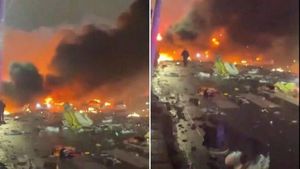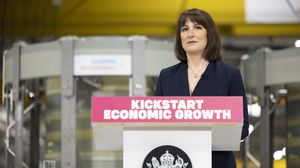Serbian students are set to lead mass demonstrations and blockades across three bridges over the Danube River this weekend, marking three months since the tragic collapse of the concrete canopy at the Novi Sad train station, which claimed the lives of 15 individuals on November 1, 2024. This disastrous event has ignited widespread unrest and has turned these protests against government corruption, rooted deeply within the infrastructure project’s dealings with Chinese state companies, transforming the marchers from mere mourners to powerful advocates for change.
On February 1, 2025, tens of thousands of demonstrators are expected to converge upon Novi Sad, for the event aptly named “Three Months — Three Bridges.” This blockade is more than just remembrance; it is also characterized as the most serious challenge to Serbian President Aleksandar Vucic’s administration, which has faced rising pressure from the public for accountability and transparency.
The agitation began when students and citizens rallied against perceived corruption linked to the flaws in the recent reconstruction of the train station. These allegations have sparked outrage, with many believing the tragic collapse resulted from neglectful oversight and the prioritization of profits over safety by government officials. "Many believe the collapse was caused by government corruption," echoed sentiments from the local community, highlighting the collective indignation felt across the nation.
Leading the march from the capital, Belgrade, hundreds of students faced freezing temperatures and endured the hardships of marching nearly 80 kilometers (about 50 miles) to their destination. Enthusiasm, camaraderie, and unyielding purpose were palpable as citizens greeted them with cheers, honks, and offers of food and refreshments along the way. On Thursday, the students were embraced by the townsfolk of Indjija, celebrating their arrival with fireworks and shouts of encouragement.
Despite their determination, the protesters have not been without peril. There have been violent attacks against them, including incidents where cars rammed through protest lines, leaving serious injuries behind. On one occasion, during the daily observance of silence at noon—marking the exact moment the canopy fell—a driver plowed through, injuring participants and raising the stakes for those taking to the streets. "It's not easy. They limp, they have blisters, their feet hurt,” said Dung Grabos, one of the students at the forefront of the demonstrations. His words serve as both testimony to their endurance and to the emotional weight borne by each participant.
Another student, Nevena Vecerinac, offered her outlook, saying, "We will make it to Novi Sad. Yesterday’s walk was easy. It’s cold now, but we can make it. We all have the same goal.” This sense of common purpose has crystallized among the students as they continue their fight against corruption, echoing the broader calls for accountability not just for the canopy collapse but for systemic problems plaguing Serbia.
Luka Arsenovic, another student, voiced the protesters’ deep-seated hopes, asserting, "We need support from all people. With this energy and mood I hope we can do it; otherwise, there will be no brighter future.” The growth of solidarity, seen by the outpouring of support from citizens, has amplified the message of the protests and shown resilience against the government’s past attempts to undermine their claims by labeling them as foreign agents or attempting to intimidate them.
This movement has already yielded notable political shifts: the protests have compelled Prime Minister Milos Vucevic to resign, reflecting the seriousness of the protestors' demands. Various concessions have been made by the authorities; yet, the students are steadfast, deeming these measures insufficient. Faced with continuing demonstrations, the government has oscillated between threats and negotiations, and there seems to be no turning back for the protesters.
These events are not just local happenings; they have drawn attention regionally and internationally, highlighting the power of grassroots activism. The uprising seen among Serbia's youth indicates a growing discontent with the status quo. Their ability to mobilize, inspire, and rally support is reshaping the narrative around governance and corruption.
With blockades planned and emotions running high, this weekend's events are destined to be significant not only for the citizens of Novi Sad but for the entire nation as Serbia grapples with its future amid echoes of the past. The strong spirit displayed by the students might just be the catalyst needed for lasting changes within the country's establishment, forcing the government to reckon with the long-standing issues of corruption and mismanagement.



